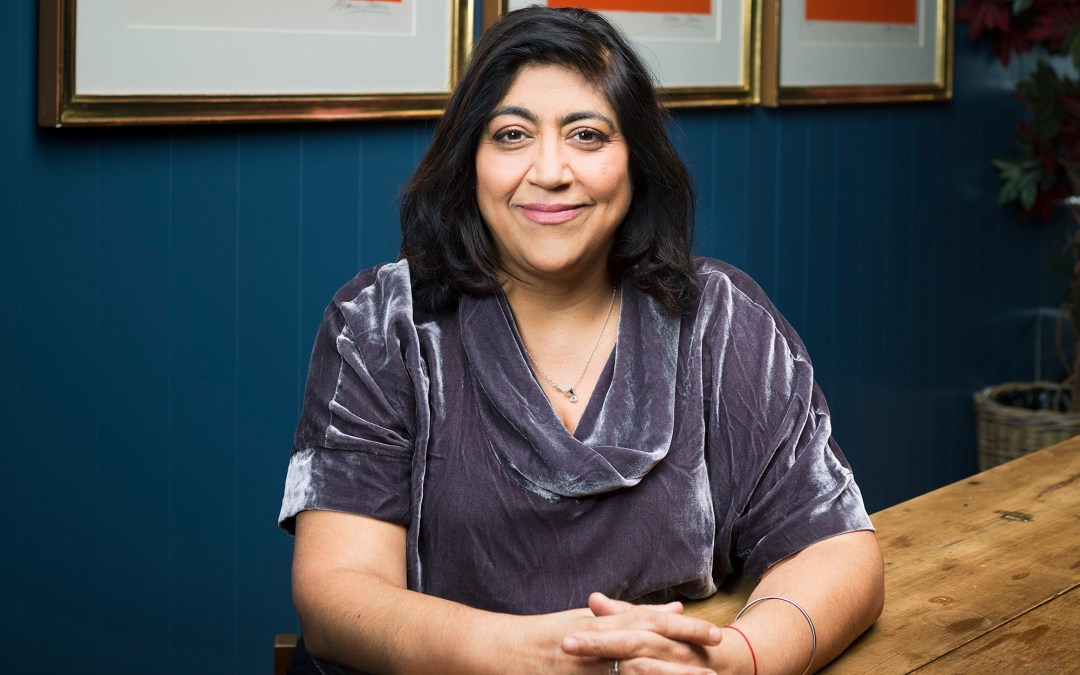Gurinder Chadha on Viceroy’s House, inspiration and humanity
The film director talks to Danielle Woodward about inspiration, ideas and humanity, plus her latest film, Viceroy’s House, which gives a fresh perspective on history

Unkind people make me angry. I’ve dropped friends when I’ve seen them being unkind because they enjoy the power trip. I can’t tolerate people who don’t have compassion and kindness. If I can teach my children to be kind, compassionate and have empathy, they’ll turn out to be amazing human beings.
Growing up as a child of immigrants, I became used to inhabiting different worlds – others might have seen them as disparate worlds but, to me, they were one. When someone said to me, ‘You don’t belong in that world,’ my attitude was: ‘I’ll make it part of my world.’ I never feel like I want to be part of a club; I want them to be part of my club. People who are monocultural don’t understand what it’s like to have windows into different worlds.
I never had strict pressure from my parents. My mum just wanted me to cook properly! My dad said, ‘Do what gives you pleasure, but make sure it’s decent.’ He loved that I chose a profession that lets me speak on behalf of my community.
When you choose to be a public person, you have to deal with negativity. I seek to understand it – what makes them feel they can say that? AO Scott in The New York Times said in his review of Bend It Like Beckham that the film doesn’t represent the authentic voice of British Asians. I didn’t think, ‘Oh no, my film is a failure.’ I thought, ‘This guy doesn’t understand the experience of a British Asian growing up in West London.’ He feels because of who he is, and the power he has, that he can make that statement.
The voices that dominate often drown out others, so when they hear something different, people just hear the surface [of what’s being said]. They might criticise, but that indicates how hard it is to challenge people’s perceptions with a new voice. Twenty-five years ago, I was the first Asian woman in Britain to make a feature film and, 25 years later, I’m still the only one earning a living making films. We need new voices.
I grew up in the shadow of Partition [when India was divided in 1947]. It was a great tragedy for some, but it was euphoric for others. I’d always felt I should make a film about it. Then, when I went to Pakistan and met the people who were living in my ancestors’ villages, it sparked something in me.
I didn’t want to make a film depicting the violence; I was inspired by those Raj films like A Passage To India, so I came up with an ‘Upstairs, Downstairs’ framework that subverted traditional expectations – the people who might have been extras in those other dramas, have voices in my film.
I wanted Indian, Pakistani and British people to relate to it. Half of the experience of watching a film is what the audience brings to it; their own story and what they are willing to explore when uncomfortable subjects are raised.
The film is about what happens when politics of hate are introduced, as that leads to violence. When a couple has a baby, they focus on nurturing and protecting, then somehow, as adults, we want to hurt other people’s children. It’s not a natural human instinct to do that, so where is the disconnect?
If we deny women the chance to partake in cultural forms that are relevant today, we’re denying our heritage. Those great books by Austen, Eliot and the Brontës were all written with a female perspective, and that’s what makes them delicious. If you don’t allow a big chunk of people to be part of that voice, it denies us all the pleasure in hearing different voices because, in the end, it enhances everyone’s voice.
I have an intense, insane working life; I jump from one thing to another. It could be stressful, but I enjoy it. When I feel I’m overdoing it, I stop and take to my bed or go for long walks. The destressor, for me, is having time to process.
Viceroy’s House is in UK and Irish cinemas now. Find out more about this film at benditnetworks.com
Photograph: Pal Hansen for Psychologies Magazine








